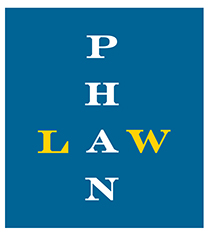A closer look at falsification allegations brought against Texas nurses under the Texas Board of Nursing’s rule 217.12(6)(H), providing information which was false, deceptive, or misleading in connection with the practice of nursing
The falsification allegation
One of the more often seen alleged violations as a professional license defense attorney practicing before various licensing boards involve falsification. In short, the licensing board alleges that that its licensee has engaged in conduct that intentionally or purposefully misrepresented a true fact.
Take for example, the Texas Board of Nursing, an entity regulating nurses in the State of Texas and an agency very familiar to me and the firm, having served as one of its in-house attorneys. This alleged misconduct usually is in the context of documentation (i.e., nursing notes), but it can extend to reporting of a home visit on a log that was not done, reporting hours that were not worked as claimed on a timesheet, medication that was not administered, etc.
However, these types of alleged misconduct can also appear with respect to claims involving conduct away from the day-to-day nurse setting such as submitting information on a nursing application for employment, on an application for licensure (if a prospective nurse), or on a renewal of licensure (if an established nurse).
Understanding the Board of Nursing’s rule 217.12(6)(H)
Per Board rule 217.12(6)(H) it is improper for a nurse to provide information which is false, deceptive, or misleading in connection with the practice of nursing. See 22 TEX. ADMIN. CODE § 217.12(6)(H) (Emphasis added). The phrase “in connection with the practice of nursing” is interpreted broadly by the Board, giving it authority to examine a nurse for conduct that may not be so readily apparent such as submitting an application for employment when that nurse may not be working as a nurse.
A potential pitfall for Texas nurses
Take for example, a nurse who renews his or her license biennially. If you are a nurse who has renewed your license with the Texas Board of Nursing, you have no doubt come across questions that the Board asks of its licensees as part of the licensure renewal process. Although intuitive, it bears repeating that careful attention should be paid to these questions, answering them and answering them honestly. Perhaps there is no other form question that I get calls about or in which I have assisted in defending than to the following question, or a variation of this question:
“[h]ave you, within the past 24 months or since your last renewal, for any criminal offense, including those pending appeal:
A. been arrested and have any pending criminal charges?
B. been convicted of a misdemeanor?
C. been convicted of a felony?
D. pled nolo contendere, no contest, or guilty?
E. received deferred adjudication?
F. been placed on community supervision or court-ordered probation, whether or not adjudicated guilty?
G. been sentenced to serve jail, prison time, or court-ordered confinement?
H. been granted pre-trial diversion?
I. been cited or charged with any violation of the law?
J. been subject of a court-martial; Article 15 violation; or received any form of military judgment/ punishment/action? (You may only exclude Class C misdemeanor traffic violations or offenses previously disclosed to the Texas Board of Nursing on an initial licensure or renewal application.)
This question, more so than any other, gives rise to a great deal of consternation and angst among nurses, especially in light of Board Rule 217.12(6)(H). Those with criminal histories (including arrests) who previously answered this question in the negative and submitted same to the Board should most likely expect a Board complaint to ensue at some point; the basis of which alleging misconduct for failing to provide information to the Board which it considers false, deceptive, or misleading in connection with the practice of nursing in addition to the underlying criminal history which may also subject the licensee to discipline. If this occurs, it is highly advisable to contact a Texas nurse attorney at the firm.
The bottom line
The determination on whether answering no to this question when it should have been yes (which forms the basis for the disciplinary action) will turn on whether the licensee knowingly and intentionally misrepresented true facts to the Board at the time the licensee completed the renewal form and answered the question. Because this is the standard that must be utilized in a falsification claim, each case will turn on that case’s facts. In particular, the mental impression and/or understanding of the licensee at the time he or she completed this question.
In handling previous cases, and even though the latest version of this question qualifies the relevant period of time to “within the past 24 months or since your last renewal,” I have seen the Board produce initial applications for licensure or renewal forms for licensure from years past; in some instances several decades in the past claiming that the answer(s) provided were false, deceptive, or misleading. Of course, any underlying conduct that may be actionable such as criminal history must also be further explored and analyzed.










